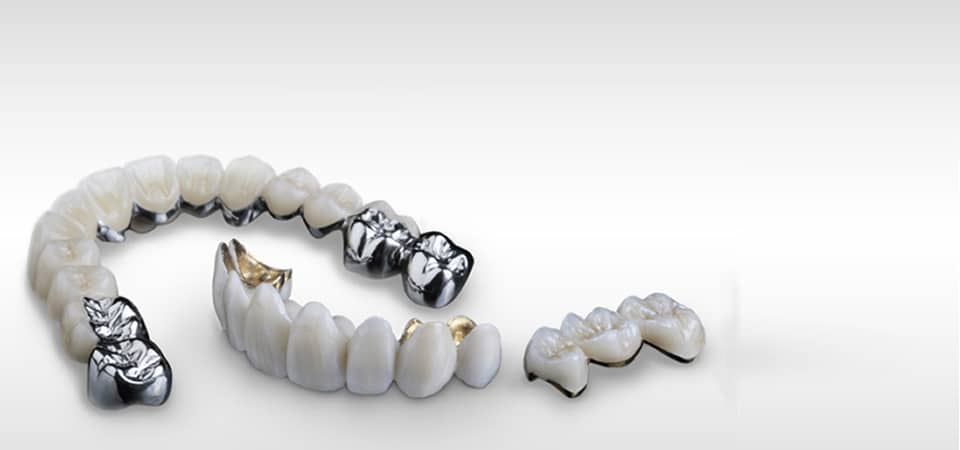- Lab Services
Featured Products
- Dental Up
- About
- Contact
Menu
Featured Products

Dental crowns are a popular restorative treatment designed to restore a person’s teeth to their original shape, size, strength, and appearance. One of the most common materials used for dental crowns is zirconia, a crystal form of zirconium dioxide that offers excellent strength and durability along with an aesthetically pleasing appearance.
In this article, we will provide an overview of the advantages and disadvantages associated with zirconia dental crowns. We will discuss the natural look and feel of zirconia, its strength, and durability, non-toxicity, the cost compared to other materials, limited shade range, and susceptibility to edge fracture.
By learning about the different aspects of zirconia dental crowns, you can discuss this option better with your patients.
Simply put, dental crowns are a restorative treatment in which a ceramic prosthetic is placed over a tooth in order to restore its shape, size, strength, and appearance.
One of the most popular materials used for dental crowns is zirconia.
Zirconia is a crystal form of zirconium dioxide that offers excellent strength and durability along with an aesthetically pleasing appearance. Following, we’ll discuss the advantages and disadvantages of zirconia dental crowns.
Read more about the History of Zirconia in dentistry.
One advantage to using zirconia for dental crowns is its natural look and feel. Zirconia is biocompatible with oral tissue, meaning it won’t irritate the gums or other soft tissues in your mouth as metal crowns might. The material also has an organic sheen that looks very much like real teeth.
Another advantage to using zirconia for dental crowns is its strength and durability. Zirconia is extremely strong and can withstand normal wear and tear better than other materials such as porcelain or acrylic. This makes it ideal for restoring back teeth like molars that must be able to withstand heavy chewing forces.
Get it in first hand watching Dr. Hornbrook doing a Zirconia Hammer Test at a KDZ Bruxer® Solid Zirconia Crown!
Last, but certainly not least important: zirconia is non-toxic and highly resistant to corrosion from acidic foods or beverages that you consume each day. This ensures that your dental implants will stay looking great for years to come without putting your health at risk.
The biggest disadvantage of zirconia dental crowns compared to other materials such as acrylate or metallic alloys is their cost. Zirconia can be as much as twice the cost of these materials making them less accessible for some people who want low-cost treatment options.
Another disadvantage associated with zirconium crowns is their limited shade range when compared to porcelain or composite resin-based products on the market today.
This means you may be limited in how closely you can match your natural tooth color when choosing a zirconium crown restoration option instead of a more flexible overall material selection range available with porcelain or composite resin-based treatments offered instead.
Zirconia crowns have also been shown to be more prone to fracture along their margins when compared to other materials. This risk can be especially concerning when applied to molar crowns that must bear heavy chewing forces.
While some of these fractures can be repaired, this potentiality presents an additional risk that must be taken into consideration before undergoing zirconium crown restoration treatments.
In summary, zirconia dental crowns have some advantages and disadvantages associated with them. Their natural look and feel, strength & durability, and non-toxic properties make them a desirable treatment option for many people.
However, their higher cost compared to other materials, limited shade range, and susceptibility to edge fracture may make them a less feasible treatment for others.
It’s important that your patients have access to all this information when considering zirconia dental crowns. With that, you can help them weigh all of the pros and cons before making a decision about the best treatment for their oral care needs.
They should know, additionally, that proper care and maintenance are important to ensure that zirconia crowns last as long as possible.

Join our mailing list and receive:

Copyright © 2024 Keating Dental Lab. All Rights Reserved.
Thank You!
Your information has been received.
CHECK YOUR EMAIL FOR DETAILS ON HOW TO RECEIVE YOUR DISCOUNT.
Click here to learn more about Keating Dental Lab.

Thank You!
Your information has been received.
If you have a question, or would like to talk to us about a case, give us a call:
877-872-3510
Click here to learn more about Keating Dental Lab.

Thank You!
Your information has been received.
If you have a question, or would like to talk to us about a case, give us a call: 877-872-3510
Click here to learn more about Keating Dental Lab.

{field:firstname}
Experience the ‘Keating Difference’
For Licensed Dentists Only.
All fields must be completed